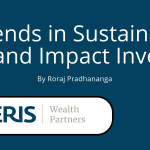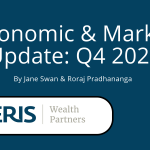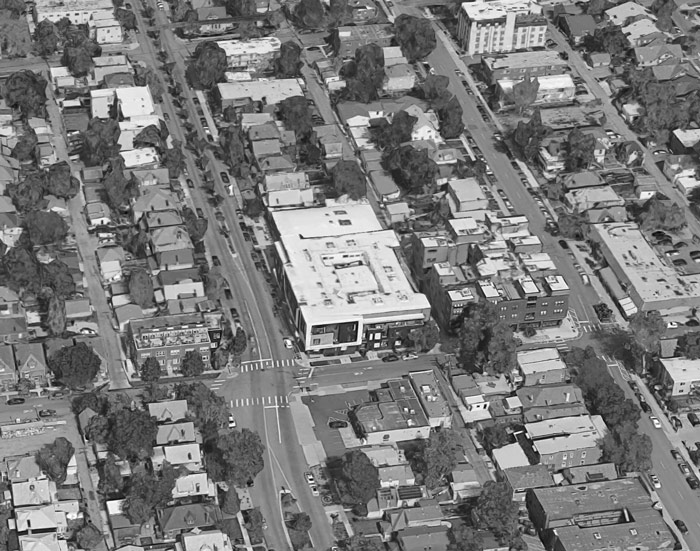The Veris Agenda: Five Impact Investing Themes for 2015
By Patricia Farrar-Rivas, CEO
As impact investors, Veris Wealth Partners directs capital to support the varied goals of our clients, while helping create a more just and sustainable world. The process of aligning values with wealth through impact investing continues to revolutionize the capital markets in the U.S. and abroad.
Impact investing also does something else that’s very important: It delivers both positive social change and financial performance. Very few wealth management strategies can achieve both of these goals.
With such a broad mandate and so much opportunity, the question is how do we determine where to concentrate our efforts and yours?
High Five
At Veris, we are focused on five key impact investing themes. These focus areas aren’t new for Veris; we have been working on them for many years. All of these themes are highly interconnected, though different in terms of suitability and risk.
Our team is excited about these investing themes for good reason: Each one seeks to mitigate specific risks and identify promising investment opportunities that can deliver significant environmental and social impact. In our blogs and white papers in 2015, you’ll hear more from us on these topics. Also expect that our point-of-view will evolve even further as new developments unfold.
1. Gender Lens Investing
Gender lens investing is one of the newest strategies for creating impact. Gender lens investing includes investments that make capital accessible to female entrepreneurs and businesses; promotes gender equality in the workplace by supporting companies that are gender policy leaders; and invests in products and services that benefit women and girls.
The data shows that better companies and communities are created when wealth and leadership flow to women, whether the goal is to lift women and girls out of poverty or bolster women’s leadership and entrepreneurial success.
Put simply, investing in women is good for all of us. By focusing on some of us we all win.
2. Sustainable Agriculture and Food Systems
Agriculture is the most dominant human endeavor on the planet. Agriculture as it is practiced today threatens wild plant and animal species, as well as the natural ecosystem upon which humans and wildlife depend. Today, over 70% of fresh water goes to crops, livestock grazing and forestry.
With the world population estimated to reach 9 billion by 2040, it is imperative that the management of agriculture systems be improved to increase productivity and preserve biodiversity. Investment in sustainable agriculture seeks to demonstrate that environmentally progressive farming practices are scalable and are more economically viable than today’s chemical-dependent commodity agriculture.
Further to advance this new agriculture consumers are demanding food and agriculture systems that return closer to their communities and regions. This too is a very positive trend, rebuilding a local food infrastructure which has been swallowed by Agribusiness and multinational food companies. Many of our clients are already very engaged.
3. Climate Change and the Environment
Climate change continues to be one of the most critical issues of our time. Global warming and the ongoing degradation of the environment pose growing risks to the planet and demand new solutions. As the effects of climate change accelerate, they are challenging corporate profitability and governments’ budgets on a global scale. The fallout from climate change is already beginning to create a ripple effect in equity markets.
As investors, we are constantly looking at the trade-off between risk and expected return. Incorporating climate change risk into portfolio management is vital to comprehensive risk analysis. One of the major financial risks we are following is the whole question of “Stranded Assets” being created as a world dominated by fossil fuels shifts to a renewable future. Trillions of dollars of existing energy assets are likely to see their value greatly depreciated in the transition. The good news is that across financial sectors and industries, there are a rapidly growing number of investments driving environmentally positive solutions.
4. Community Wealth Building and Social Justice
Community Wealth Building is a fast-growing economic development movement intended to strengthen local communities. It aims to redirect the flow of assets back from Wall Street to Main Street. Community wealth building promotes democratic ownership and local control of businesses and jobs. It seeks to develop local talents, capacities, facilities, and capital. Community wealth builders are developing and strengthening locally-owned – and often community-owned – businesses, universities, hospitals and non-profits that are anchors of their local economies for the long term.
The Community Wealth Building field is comprised of a broad range of models that have been growing over the past 30 years. These include cooperatives, employee-owned companies, social enterprises, trusts, municipal enterprises, community development financial institutions, community banks, and more. The profound issues of Inequality are now clear to all. Developing real strategies that work to rebuild communities for the “99% of Americans” are deemed essential by both the Right and the Left. The energy and ideas flowing from the community wealth movement will be exciting to watch in 2015.
5. Sustainability and Mindfulness
Sustainability is another emerging area of great opportunity and interest for both global and local companies who share a progressive sense of responsibility. At the most fundamental level, sustainability is a deep understanding that everything is seamlessly and beautifully interconnected.
Sustainability is about looking at the world holistically, and acting from this understanding. It’s also about connecting the dots – uniting different branches of knowledge to produce solutions that transcend an atomized world. Equally important, interconnectedness refuses to be blind to the negative impact that one group or industry working independently may have on the greater whole of society.
When we practice mindfulness, and are present with the choices we make every day, greater sustainability and greater innovation unfolds. Mindfulness recognizes that each of us, doing our own work in our own field, impacts others — even if we don’t see it or don’t realize it. At Veris, mindfulness is what we try to practice every day.
***
We hope you share our enthusiasm for these particular issues, and we welcome any ideas to help us have greater impact.







